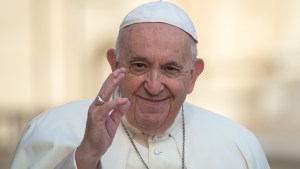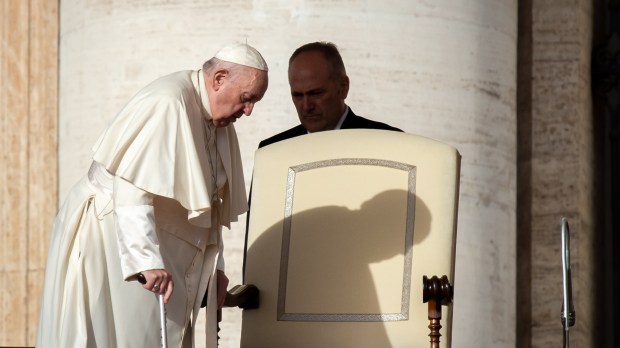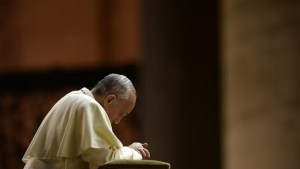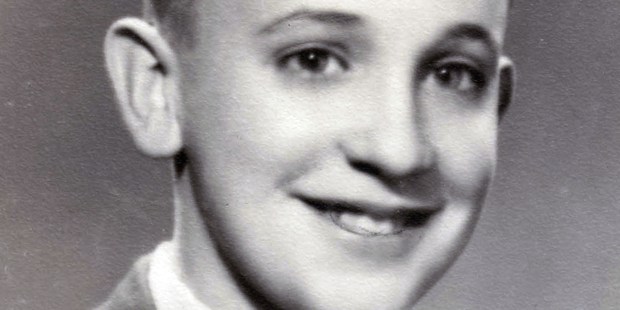In an interview with Italian daily La Stampa, published on November 18, 2022, Pope Francis opened up about his old age and his family’s origins in Piedmont, a region in northern Italy. In fact, tomorrow he will go to the city of Asti, in this area of Italy, for a two-day trip to meet his relatives and celebrate his cousin’s 90th birthday.
“Quiet and religious” old age
During the interview, Pope Francis confided that he reflects “every day” on his life, following the advice of St. Ignatius of Loyola, founder of the Society of Jesus. The Pope will turn 86 in mid December.
Next year in March, the Pontiff is expected to celebrate the 10th anniversary of his pontificate. Replying to a question asking whether he was happy to be Pope he said:
“Thanks to my vocation, I have always been happy in the places where the Lord has placed and sent me. But not because ‘I won something,’ — I have not won anything … this is a service, and the Church asked me for it; I didn’t think I would be elected, and instead the Lord wanted it. So onwards. And I do what I can, every day, trying to never stop.”
Referring to his advanced age, the Pontiff, who will celebrate his 86th birthday on December 17, confided that he lives his old age with “tranquility, a great peace, a genuine joy and religiosity.”
“I feel a quiet and religious old age,” he assured, quoting a verse from a poem by German author Friedrich Hölderlin : “Es ist ruhig, das Alter, und fromm.”
The Pope also explained that he finds God in the people he meets, “in each one of you.” In the face of suffering, he extolled the virtues of silence. “So many grieving and distressed people do not need sermons, […] but only someone to take their hand and let them talk, vent.”
Revelations of a Piedmontese Pope
On the eve of his departure for Asti, the Pope confided that he wanted to “spend a few hours” with his relatives, in the region where his family originates from. He emphasized that he had been there “often” before his election, and that he used to stop in Piedmont on his way to Rome, to see his father’s cousins. “We are very close. With my older cousin, Carla, we often talk on the phone,” said the Pontiff, who will also meet five other cousins during his stay.
In a very personal response, the Pope expressed his affection for the Piedmontese language.
“When I was 13 months old my mom had a second child, and my grandparents lived 30 meters from our house: My grandmother would pick me up, I would stay with them who spoke Piedmontese. You could say that I ‘woke up to life’ in Piedmontese.”
The Pontiff then cited a poem by poet Nino Costa, who was from Turin, the capital city of Piedmont. Pope Francis’ grandmother “Nonna Rosa” taught him the poem, called “Rassa nostrana” (“native race”):
“Straight and sincere, what they are, they appear: square heads, firm pulse and healthy liver, they speak little but know what they say, even if they walk slowly, they go far. People who spare no time and sweat – free and stubborn native race- The whole world knows who they are and, when they pass by … the whole world watches them.”
The Pope explained that those in his region of origin are “people who do not waste time and are not afraid of hard work and that go get their bread in other countries in the world like Argentina, Brazil, France, Germany.”
“It is a story, that of ‘Rassa nostrana,’ which represents the life of Nonna Rosa, a tenacious woman. And I feel like a part of this journey,” he said.
He also recalled a typical Piedmontese dish, “bagna caoda,” which is made of anchovies, olive oil and garlic and is prepared in varying ways in different parts of the region. Welcoming the fact that Piedmontese food and wine are “so renowned,” the Pope explained that his family grew grapes in Bricco Marmorito, in the Portacomaro area in the municipality of Asti, and that his uncles and grandfather traded wine. “I met a cousin, married to one of my father’s first cousins: He was so knowledgeable, that if you gave him a glass of wine without telling him what it was, he would immediately know what it was. I was very impressed by this ability.”




